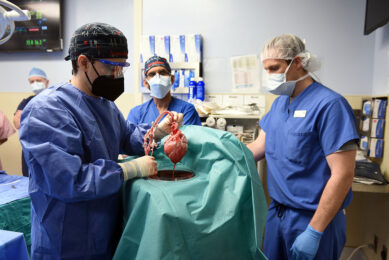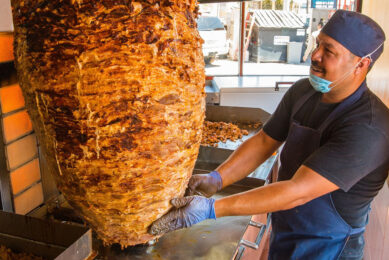US: High Court tosses California ‘Downer’ Law
In a unanimous decision issued, the U.S. Supreme Court struck down a California law that bans the processing of all non-ambulatory animals, including hogs. NPPC hailed the ruling.
The California Legislature approved the law in 2008 after a video was released by animal activists, showing non-ambulatory, or “downed,” cows at a California beef packing plant being dragged and prodded to enter the processing line. The statute prohibited the buying, selling, or receiving of non-ambulatory animals, the processing, butchering or selling of meat or products from non-ambulatory animals for human consumption and the holding of non-ambulatory animals without taking immediate action to humanely euthanize them.
[As part of its efforts to address Bovine Spongiform Encephalopathy, or “mad cow” disease, the U.S. Department of Agriculture already forbids the slaughter of “downed” cattle.]
The National Meat Association (NMA) challenged the law, and a federal district court judge in California blocked it. But the U.S. Court of Appeals for the Ninth Circuit in San Francisco in 2010 overturned the lower court ruling. NMA appealed the case to the Supreme Court, arguing that the Federal Meat Inspection Act (FMIA) pre-empts the California law.
The high court agreed with NMA, ruling that the FMIA “expressly pre-empts” the California law’s application to federally inspected swine slaughterhouses. It reversed the Ninth Circuit decision and sent the case back to that court “for further proceedings consistent with this opinion.”
“The Supreme Court’s ruling affirms the supremacy of the Federal Meat Inspection Act and USDA’s role in regulating meat process plants,” said NPPC President Doug Wolf, a hog farmer from Lancaster, Wis. “It also recognized that non-ambulatory hogs with proper recovery time and veterinary oversight do not need to be condemned immediately in all cases.”
NPPC, which along with the American Association of Swine Veterinarians and the National Farmers Union filed a friend-of-the-court brief in the case, argued that the California law would create an animal health risk and criminalizes the work of federal slaughterhouse inspectors. The organization also has pointed out that the state law could have prevented from being shipped to California meat processed in another state that did not adhere to the statute’s ban.
“Non-ambulatory hogs that are allowed to recover pose no food-safety risk to the public,” Wolf said. “Such pigs are inspected by USDA inspectors and veterinarians regarding their fitness for processing and entering the human food supply, and strong regulatory safeguards for humane treatment in the processing of animals already exist.”
Source: National Pork Producers Council (NPPC)











